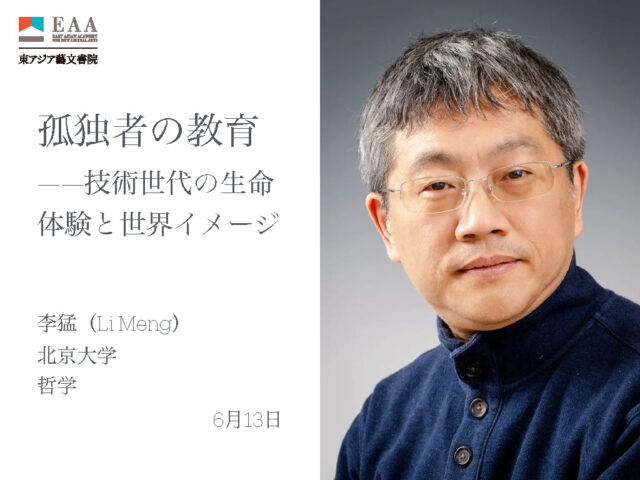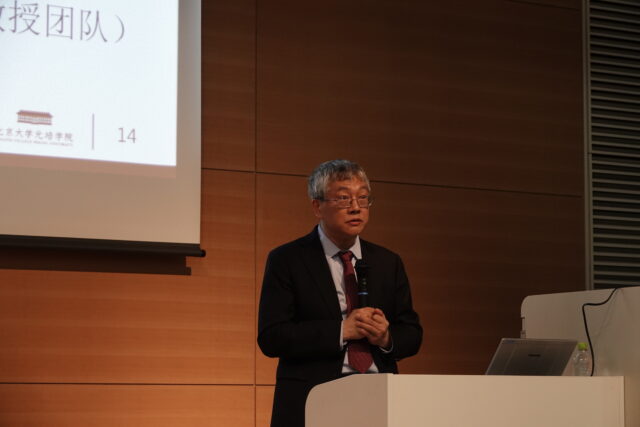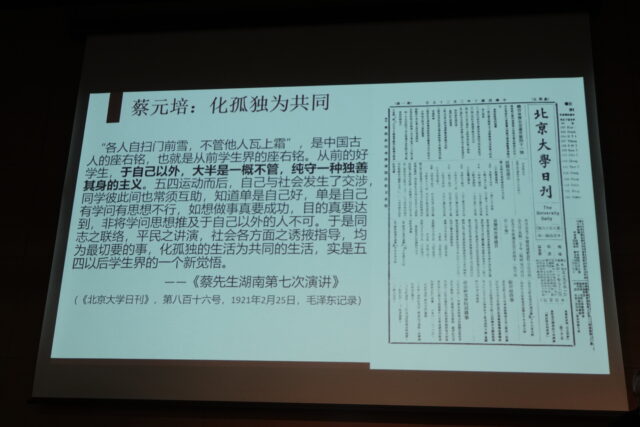
On June 13, 2025, the 9th lecture of the 2025 Academic Frontier Lecture Series titled “Toward the World 30 Years from Now — The Changing Kyoyo, the Changeable Kyoyo” was held. Professor Meng Li, from Peking University, delivered a lecture entitled “Education for the Solitaries: Life Experiences and World Views of the Technology Generation.”
Prof. Li is affiliated with Yuanpei College, an undergraduate liberal arts college at Peking University. In his lecture, he discussed the problems of research universities and the efforts at Yuanpei College to address these problems.

Recent years have seen a rapid increase in the number of Chinese universities whose main purposes are to carry out academic research and educate young researchers. In research universities, research achievements are the most important. Even in the early years of university study, undergraduates must now choose their majors and begin taking classes to improve their research abilities and skills. In the face of severe competition and the pressures of the selection process, students don’t have enough time to think about which fields they find most interesting or which fit them best. In part due to this, the word neijuan [内卷] has recently become popular in China. Roughly translated, neijuan means: “needlessly high internal competition”. A situation which may be described as neijuan now also occurs in undergraduate programs. As a result, students at present tend only to care about their grades (GPA) in order to survive the competition. Prof. Li stressed that the biggest problem in such a learning environment is the students’ sense of isolation. In such a highly-competitive environment, students cannot find an emotionally warm and supportive community, so they have no choice but to learn alone. They can develop cognitive skills by acquiring knowledge but cannot improve their noncognitive skills. Under the current conditions of undergraduate education at research universities, it is difficult for students to gain life experience, emotional experience, or personal growth.
At Yuanpei College, students can engage in interdisciplinary learning and experience communal living. They can choose from a variety of lectures in different fields, and there are many opportunities to interact with classmates in the dormitory. Prof. Li believes that undergraduate education should promote each student’s personal development through rich and warm human connections.

Yuanpei College is named after Yuanpei Cai (1868-1940), the former president of Peking University. Cai described the change in the students after the May Fourth Movement as “turning solitude into co-being [化孤独為共同].” Students who previously didn’t care about others became more oriented toward society and began to cooperate with their classmates. Cai’s words have now become the core philosophy of Yuanpei College.
Report by Konomi Niimoto (EAA Research Assistant)








